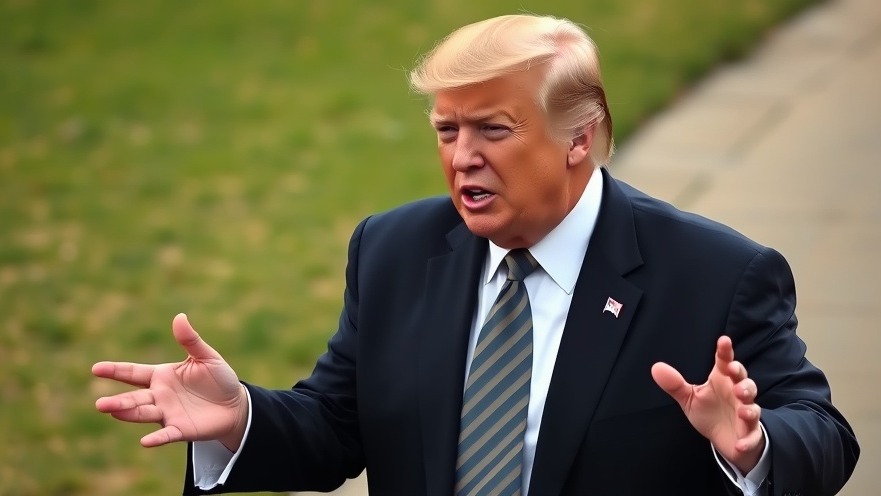
Understanding the Shift: How Trump Redefined Presidential Pardons
The presidential pardon has long been a nuanced component of American governance, with roots deep in the Constitution. Yet, no administration has shaped its application quite like that of Donald Trump. Under his leadership, the process for granting pardons has observed significant alterations, stirring debates about justice, privilege, and accountability.
The Historical Context of Pardons
Historically, presidential pardons have served as a tool for mercy. From Gerald Ford's controversial pardon of Richard Nixon to recent acts by Barack Obama, presidents have used this power to address injustices or restore public faith. However, Trump’s tenure witnessed a notable departure, with pardons frequently awarded to high-profile individuals, including former associates and controversial figures.
Examining Trump's Decision-Making Approach
The Trump administration’s approach to pardons has often been perceived as erratic and personal. Rather than a reflection of legal or moral merit, many pardons were influenced by media coverage, social media campaigns, or personal connections. The motivations behind these decisions did not merely invoke traditional concepts of justice, creating a landscape where allies could benefit disproportionately from the system.
Public Perception: A Divided Nation
The pardoning process under Trump has polarized public opinion. Supporters argue that he has used this power to correct wrongful convictions and highlight systemic flaws, while critics raise profound concerns about the implications for judicial integrity. This divide showcases how pardons, traditionally seen as acts of compassion, have become battlegrounds for broader societal debates.
Impact on the Justice System
The implications of Trump’s reinterpretation of the pardon process have raised questions about the future of justice in the United States. With public trust in the legal system waning, this new precedent may inspire future presidents to follow suit, further entrenching the influence of politics in what was once seen as a judicial remedy. This shift poses a question: will future administrations perpetuate this trend, or seek to restore the sanctity of pardons?
Future Predictions: What Lies Ahead for Presidential Pardons?
As we move beyond the Trump presidency, the evolution of the pardon power remains uncertain. Future leaders might feel the pressure to either embrace the leniency displayed by Trump or resist it to maintain credibility. The recent changes have opened discussions about the potential for reform, emphasizing the need for clearer guidelines governing the pardon process to protect its integrity.
Debating Convictions: Counterarguments on the Use of Pardons
Critics of Trump's pardon strategy consistently emphasize the risk it poses to judicial accountability. Some argue that pardoning individuals associated with corruption undermines the rule of law, setting a dangerous precedent that might encourage further executive overreach. Balancing compassion with legal accountability remains a significant challenge for future administrations.
Actionable Insights: A Call for Review of Pardon Policies
In light of these shifting dynamics, there is a strong argument for reassessing the framework governing presidential pardons. Policymakers and legal experts need to engage in a dialogue that redefines what constitutes eligibility for pardons. Establishing transparent guidelines can help ensure the process brings justice and relief to those who genuinely merit it.
As America reflects on the implications of Trump’s transformative impact on pardons, it also faces crucial decisions about how this power can either bridge societal divides or widen them. Understanding this evolution is essential for all citizens eager to navigate the complexities of our political and legal landscapes.
As this conversation continues to unfold, individuals are encouraged to stay informed and engage with local and national news. Recognizing the implications of recent decisions can empower citizens to advocate for the integrity of our justice system.
 Add Element
Add Element  Add Row
Add Row 



 Add Row
Add Row  Add
Add 


Write A Comment